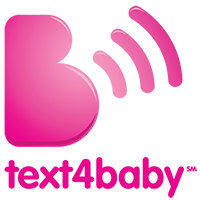Congratulations! You’re going to have a baby! While you and your baby’s dad are waiting for the big day, learn about how to take care of yourself and the baby growing inside you during pregnancy and after the baby is born. Although no one can promise you an easy pregnancy and a healthy baby, here are some important things you can do to improve your chances.
In this section, you will learn how to:
- Get early prenatal care – The sooner the better
- Stop drugs, alcohol and tobacco – It’s never too late
- Exercise – Some is better than none
- Eat healthy – Good for you – good for your baby
- Reduce stress – Stress may cause your baby to be born too small and too soon. Learn how to make your pregnancy less stressful
- Get dad involved – Things the baby’s father can do to help you have a healthy pregnancy and a healthy baby
- Prepare for baby’s arrival – Things you will want to do before your baby comes home
- Identify the signs of preterm labor – Know the warning signs and what to do!
The following information is also available:
- Your maternity rights and what you should know
- Consider breastfeeding – Best for your baby and for you
- What to know about the H1N1 virus – a greater threat to pregnant woman
Pregnant and need information about how to have a healthy baby? Healthy Mom, Healthy Baby is a “talking book” for expectant mothers. Read it on your own, or the book will be read to you. Listen to information on a variety of topics including prenatal care, what to expect during labor and your maternity rights in North Carolina.
- New - NIH Launches Moms’ Mental Health Matters
National Institutes of Health (NIH) has launched Moms’ Mental Health Matters, a new initiative to raise awareness among pregnant and postpartum mothers, their families, and health care providers about depression and anxiety during pregnancy and after the baby is born. Free materials in English and Spanish are available including an action plan, posters and a conversation starter postcard. You can view additional information on their website. - Have you heard of Cord Blood Banking?
When a child is born, blood remains in their umbilical cord, even after it’s been removed and discarded as medical waste - this is called “cord blood”. Over the past 20 years, researchers have started collecting cells from cord blood, which are being used in transplants.For additional information, please visit Cord Blood Guide where you can download a resource guide.
Resources
- Text4baby - the first mobile information service designed to promote maternal and child health through text messaging.
- Text4baby informational video (English) video (Spanish)
- U.S. Department of Health and Human Services - Effective Health Care Program: Gestational Diabetes: A Guide for Pregnant Women
- CDC Medications and Pregnancy website - up-to-date information on use of medications during pregnancy.
- Pregnant Women and Influenza (CDC) – what you should know.
- Cord Blood Banking – With over 80 diseases treated, and new therapies discovered every year, your baby’s cord blood only becomes more valuable.

